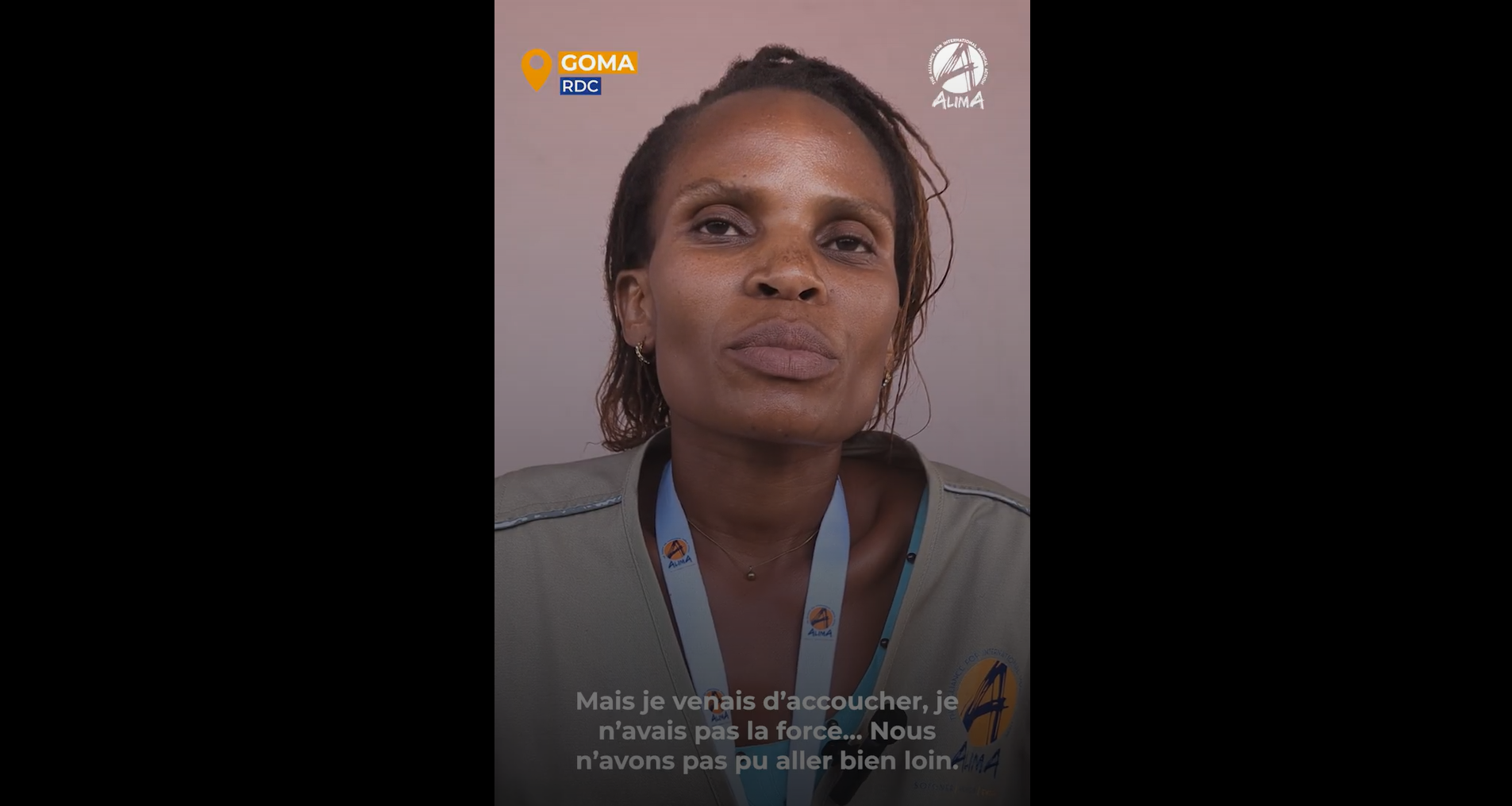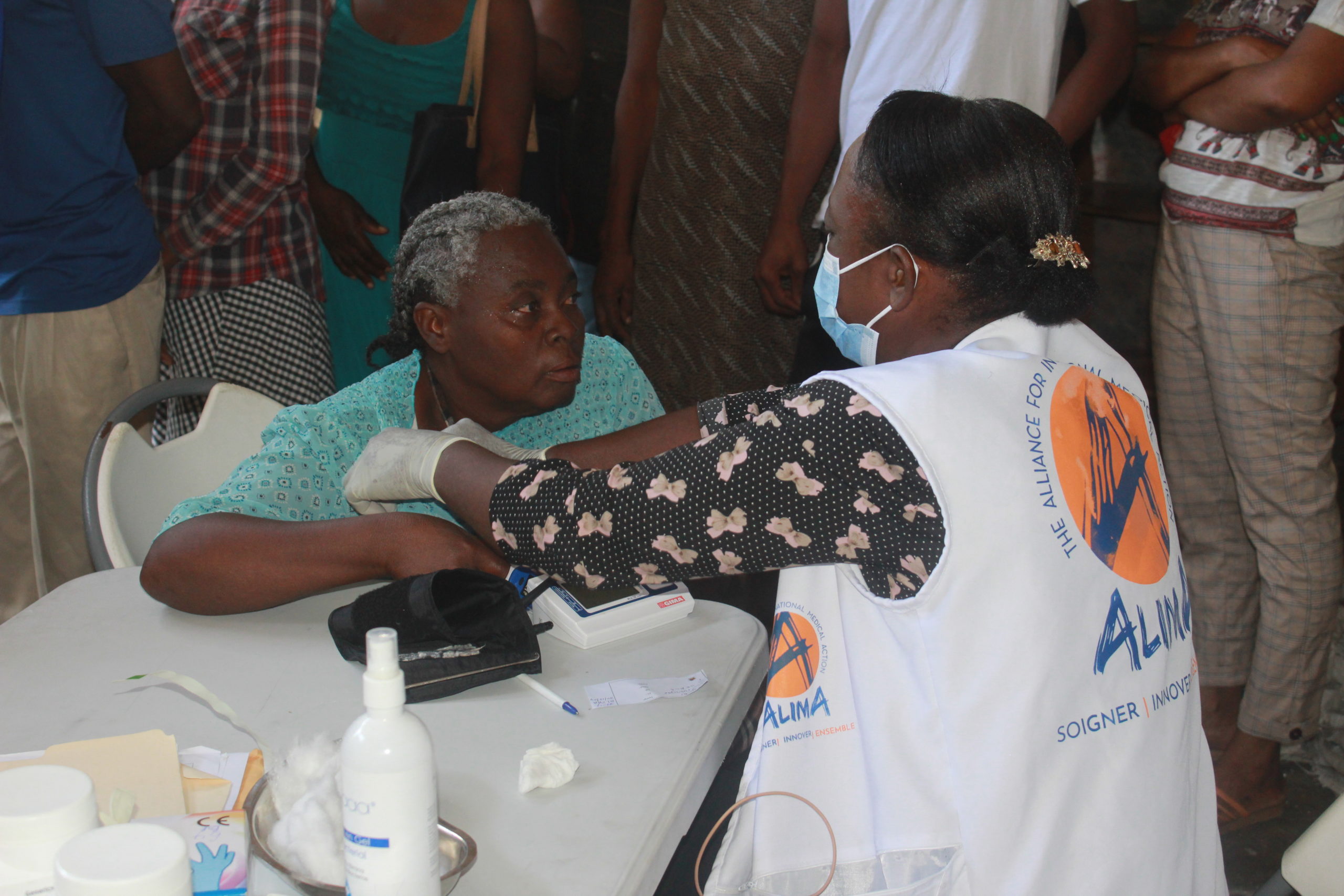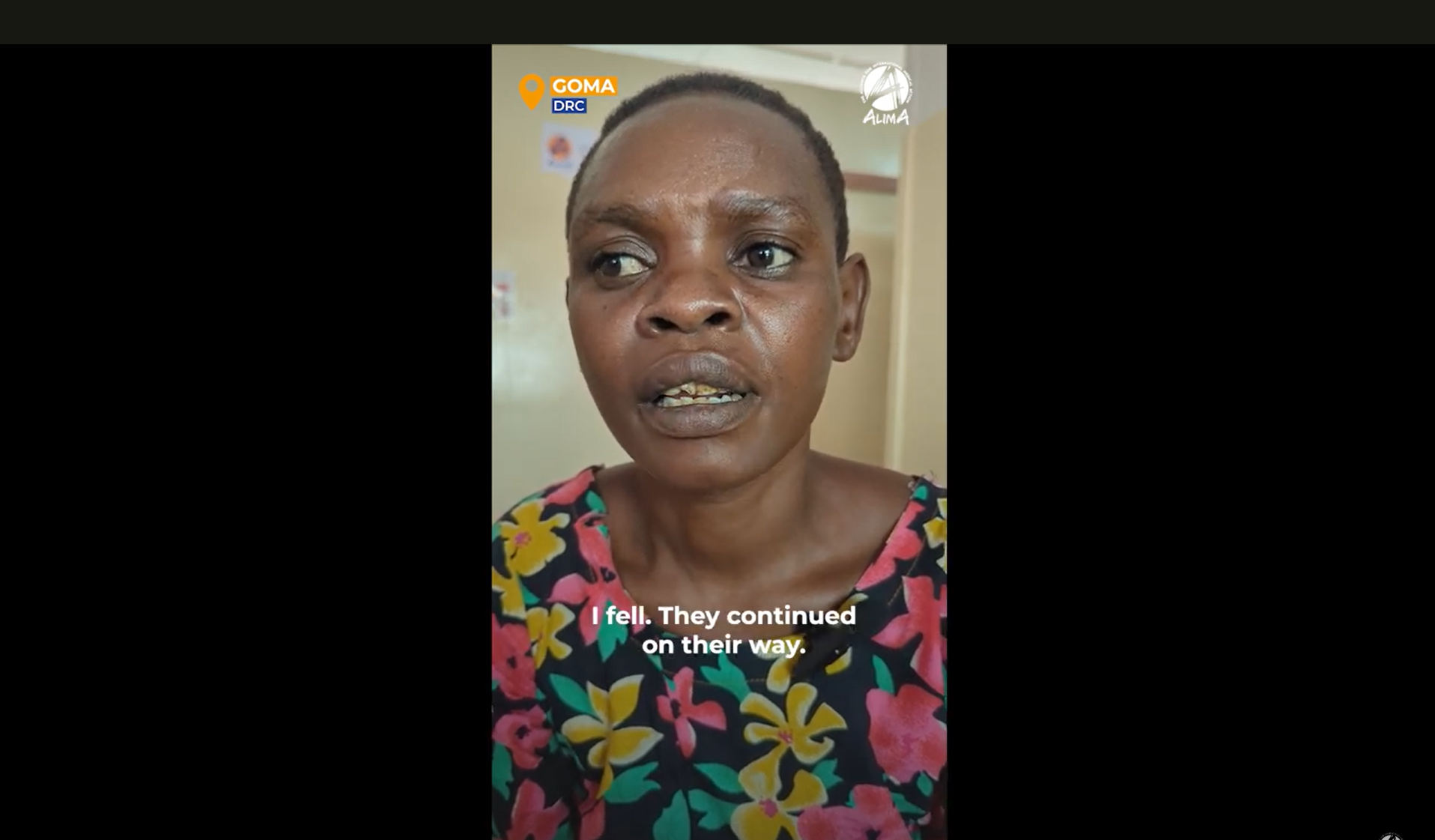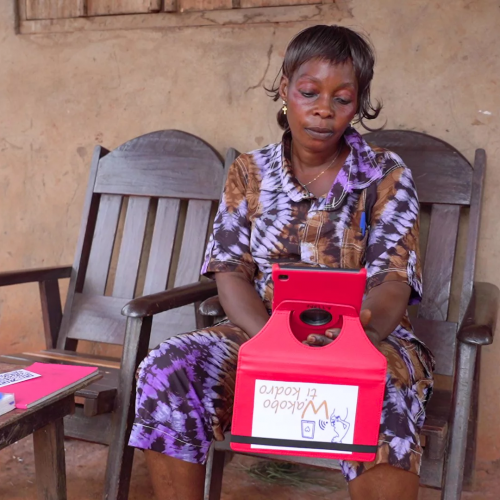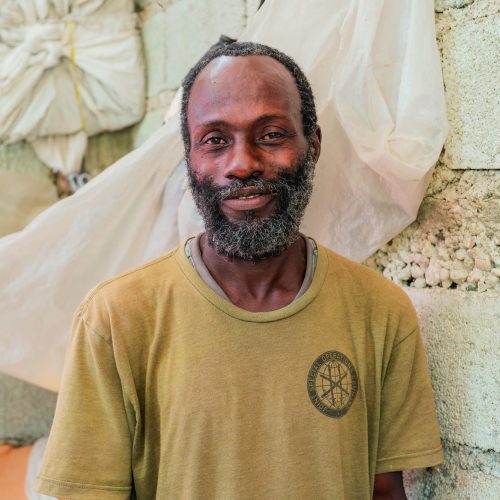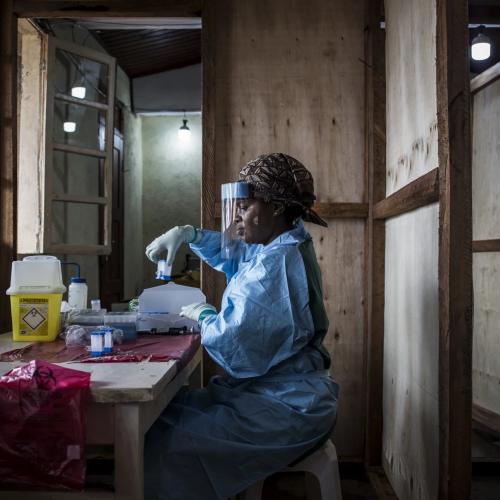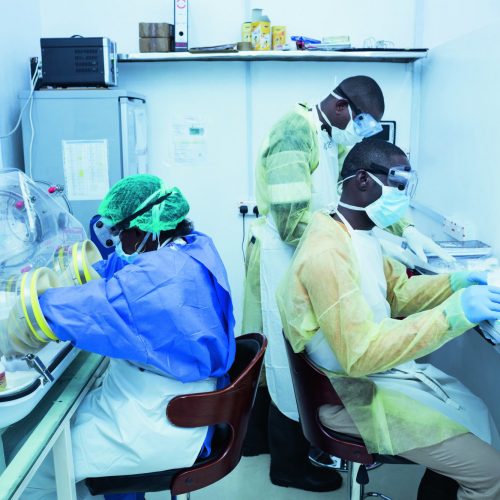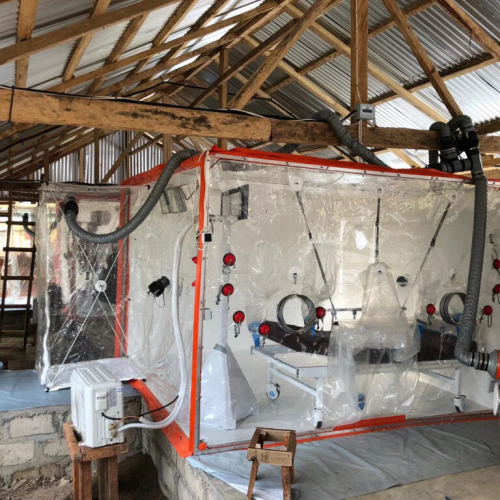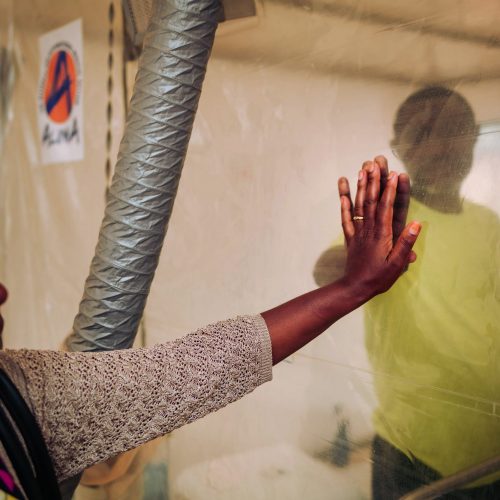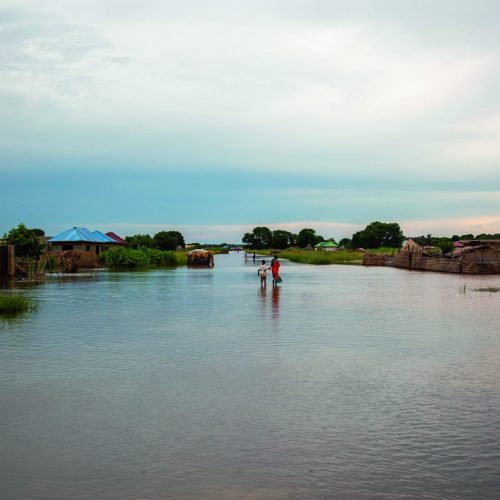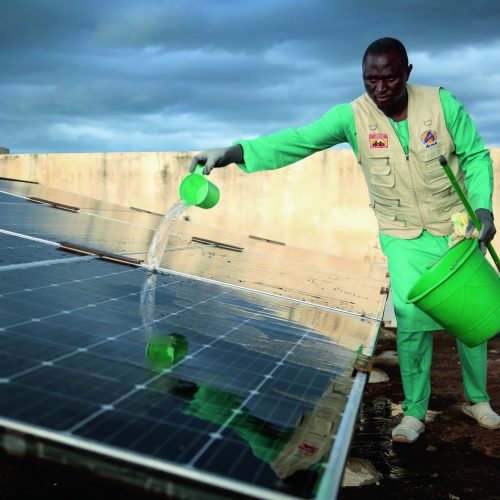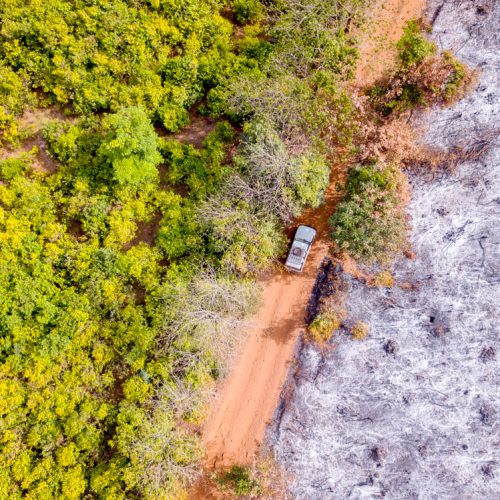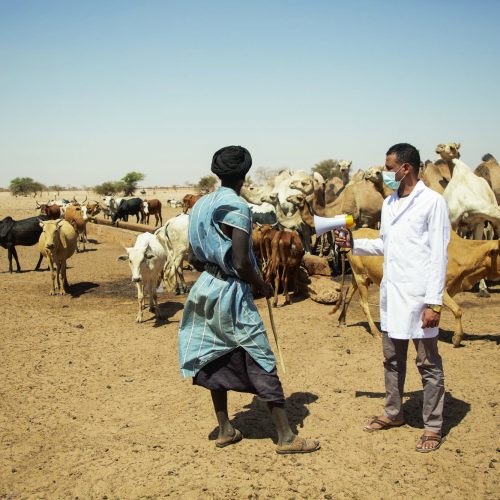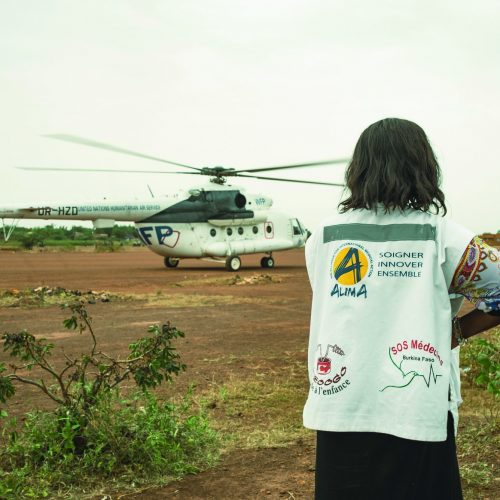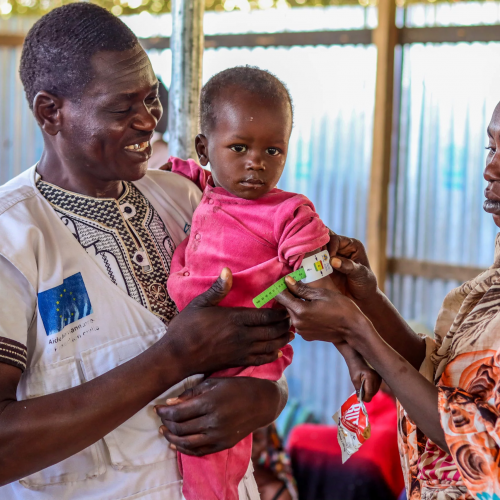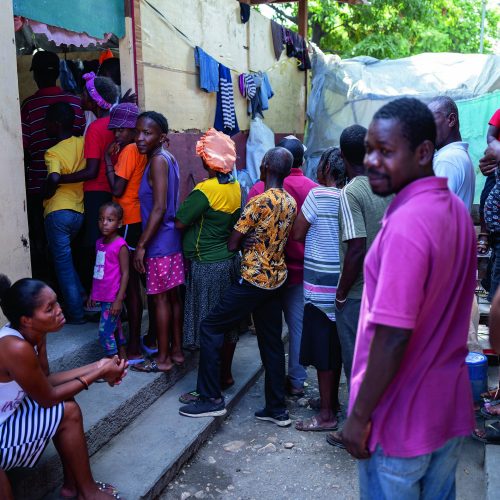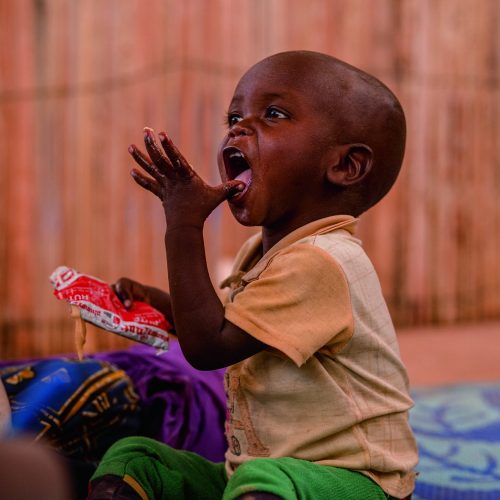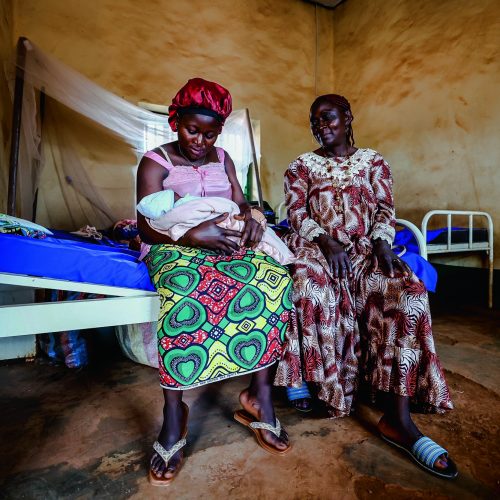Measles
Protect the most vulnerable from resurgent diseases.
© Sylvain Cherkaoui / ALIMA
Measles is an infectious disease that is currently experiencing a resurgence, after having almost disappeared in some parts of the world. This highly contagious viral illness is known as an epidemic disease, like cholera or malaria. Many countries, particularly in Africa, are still largely affected.
What is Measles?
Measles is a viral disease caused by the measles virus, a paramyxovirus transmissible among humans. This condition has long been mistaken as a harmless childhood illness.
However, in 30% of cases, measles can lead to serious and even fatal complications in infants, young adults (especially if they are immunosuppressed), and pregnant women.
How is Measles Transmitted?
The virus spreads readily through direct contact including saliva, sneezing, and coughing. Measles is highly contagious, as an infected person can transmit the virus to almost any unvaccinated person they encounter.
What Are the Symptoms of Measles?
Initially, the symptoms resemble those of a cold or flu, before becoming more specific:
High fever: appears 10 to 12 days post-exposure and lasts 4 to 7 days;
Rhinorrhea: runny nose;
Cough;
Red, watery eyes;
Rash that :
Starts on the face and upper neck,
Persists for 5 to 6 days before disappearing.
Spreads to the hands and feet within 3 days,
Once cured, individuals are immune to measles for life.
Complications can be serious, especially among children under 5 years and adults over 30, causing dehydration due to severe diarrhea, pneumonia, malnutrition, blindness, and encephalitis.
Malnourished children with vitamin A deficiency or weakened immune systems, such as those with HIV, are particularly at risk. In some cases, mortality rates can reach up to 30%. During pregnancy, measles can also result in major complications (fetal malformations, miscarriage, etc.).
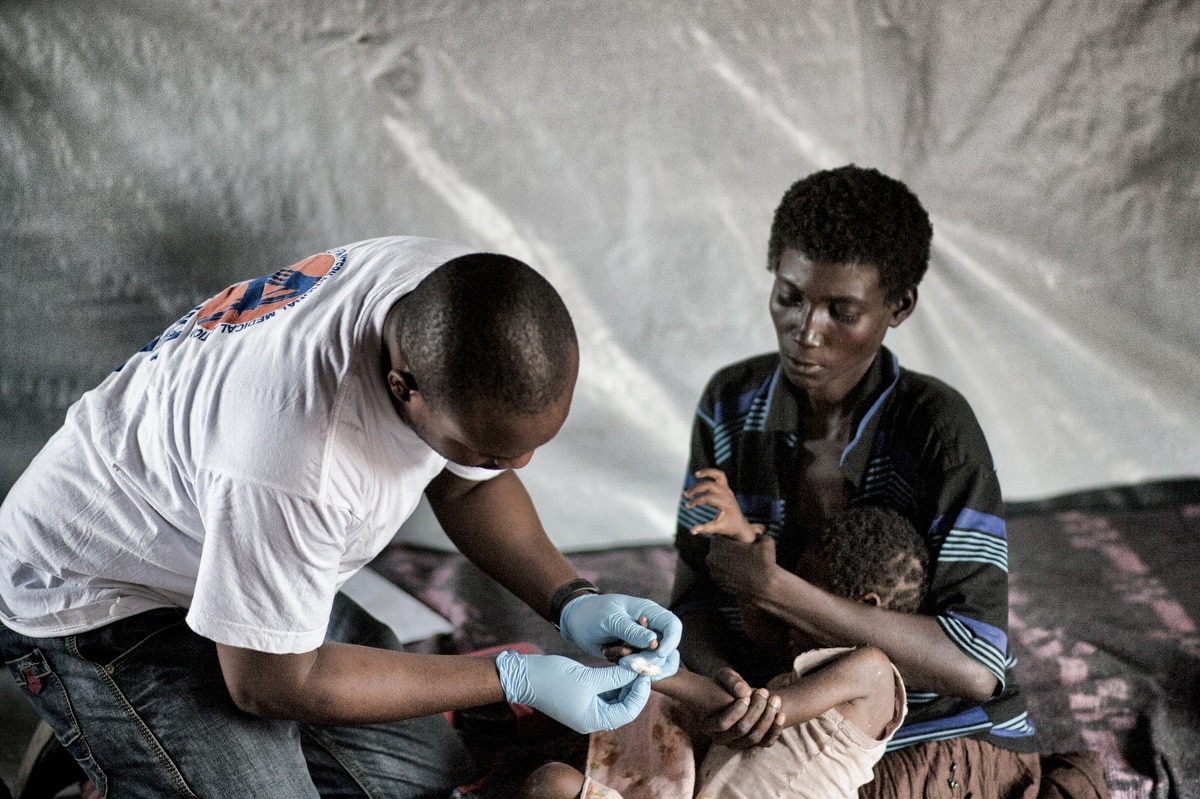
How Can Measles Be Treated?
There is no specific treatment for measles. Most cases are mild and resolve within ten days with symptomatic care and preventive treatments for complications (including paracetamol, antibiotics, and oral rehydration serums in case of diarrhea). However, in severe cases leading to complications such as pneumonia or encephalitis, hospitalization may be necessary. Vitamin A supplementation is sometimes recommended to reduce symptom severity.
Preventing Measles Through Vaccination
The most effective shield against measles is vaccination. The MMR vaccine protects against three diseases: measles, mumps, and rubella. Health authorities recommend the following:
A first dose of MMR vaccine for infants at 12 months of age.
A second dose before starting school, usually when infants are between 16 and 18 months of age.
Immunization coverage (ideally reaching 95% of the population) is essential to protect the entire community, particularly those unable to receive vaccinations (some infants and immunocompromised individuals).
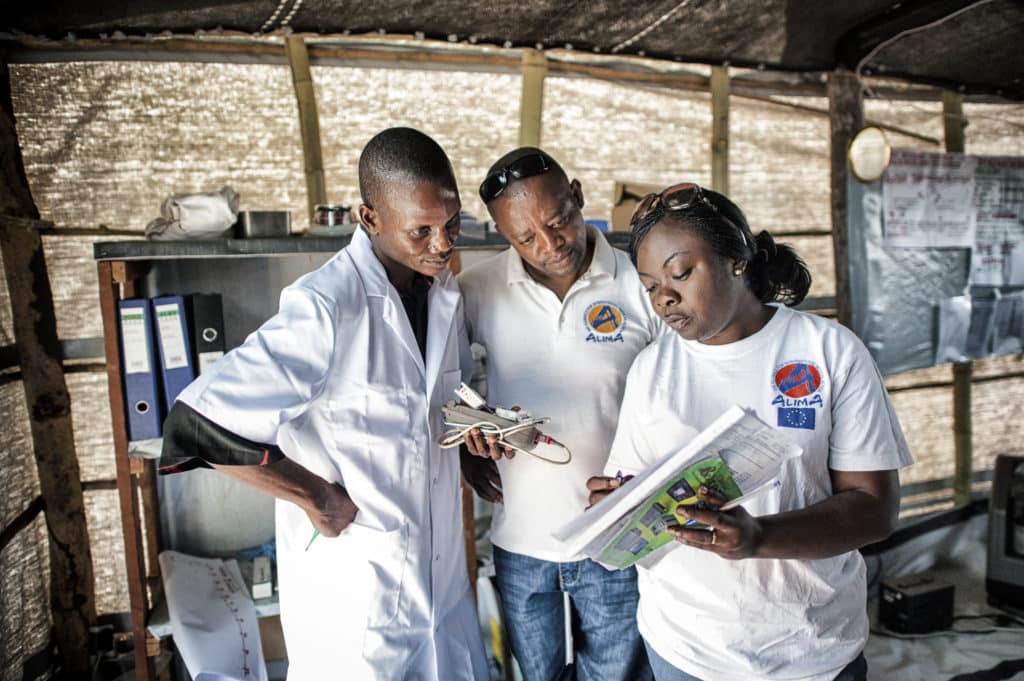
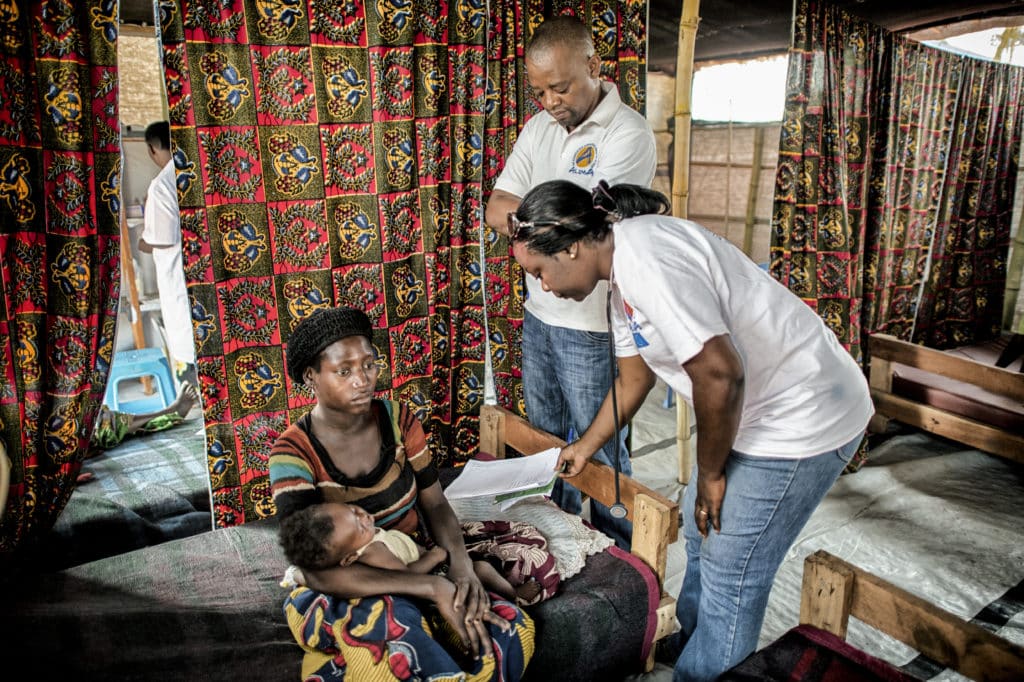
Measles in Africa: What is the Situation?
The Horn of Africa is one of the regions most affected by measles outbreaks. Despite the availability of the measles vaccine, the number of cases has increased in recent years. Young children are the most vulnerable, and mortality rates from this disease remain high, especially when coupled with severe malnutrition.
While measles may seem like a disease of the past to some, it is still a significant public health issue, particularly in areas with low immunization coverage. Vaccination remains the most effective method to protect individuals and communities from this potentially fatal disease.
How Does ALIMA Fight Against Measles?
ALIMA, the Alliance for International Medical Action, is actively engaged in combating measles, particularly in West and Central Africa, in regions affected by outbreaks. Various efforts include:
Routine immunization campaigns: For example, in 2023, ALIMA vaccinated over 27,000 children against measles in Niger.
Outbreak response: In response to measles outbreaks in Guinea and Nigeria, ALIMA co-organized emergency vaccination campaigns, reaching over 190,000 children.
Targeted interventions: During a measles outbreak in the Democratic Republic of Congo, ALIMA intensified its efforts due to limited local response capacity.
Medical management of patients who may be affected by measles: ALIMA provides doctors with medical kits that include antibiotics.
Strengthening community-based surveillance for early disease detection.
Training: ALIMA trains public health workers on effective measles treatment.
Nutritional support: ALIMA provides nutritional supplementation for malnourished children affected by measles.
By combining these initiatives and working closely with local governments, ALIMA is playing a pivotal role in fighting against the spread and impact of measles in Africa.
You can support ALIMA in this mission through donations.
